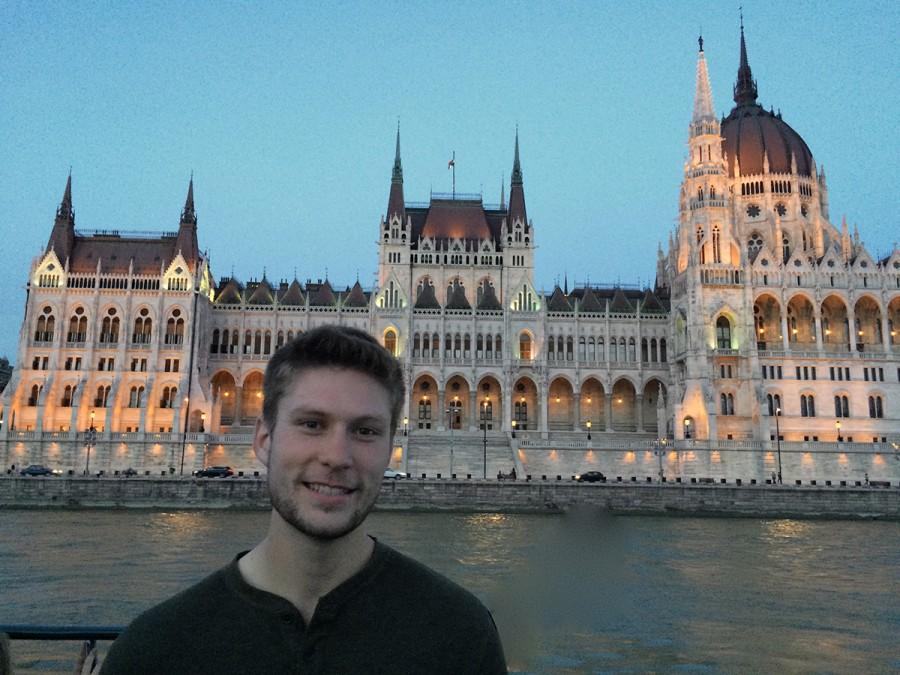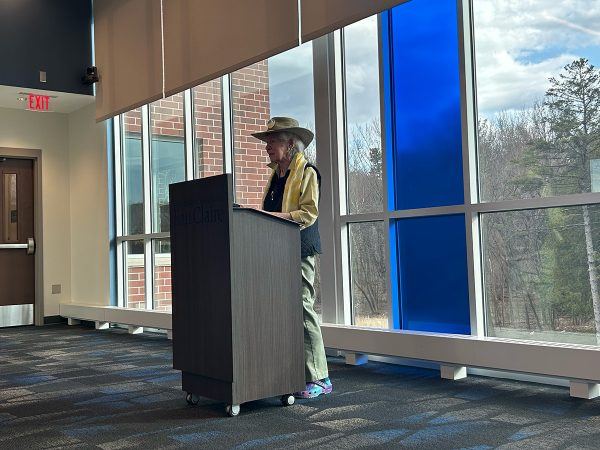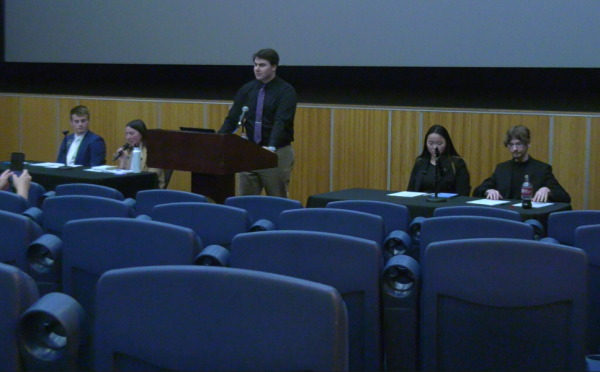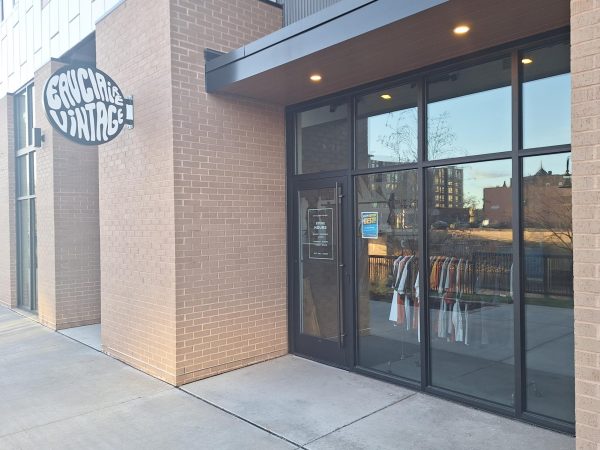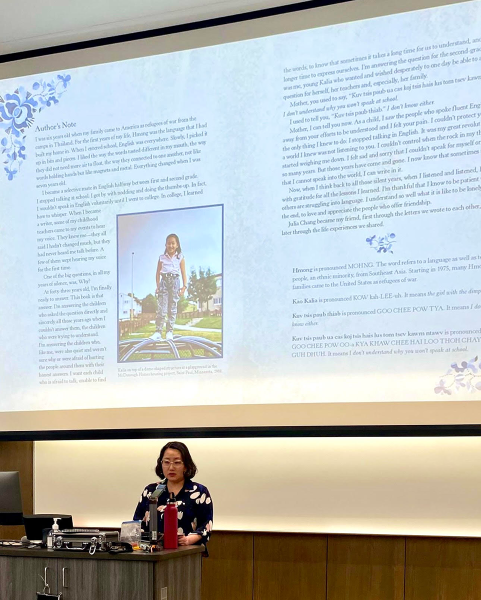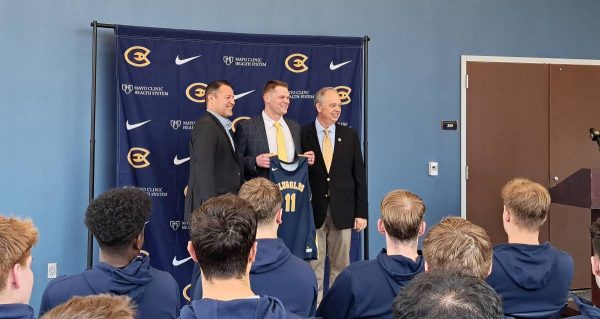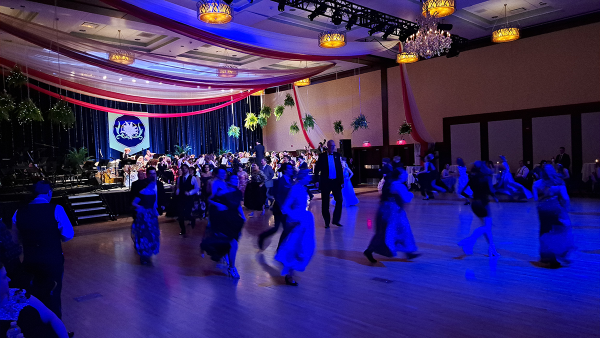Uncovering history
Students await arrival to Budapest for research this January
More stories from Meghan Hosely
Photo by SUBMITTED
Upon returning from the Central European Travel Seminar (CETS) in the summer of 2014, senior history major Trace Osborn said he heard about an opportunity to return to his favorite city on the trip: Budapest.
“I went in to (professor) Oberly … he gave me the run-down of the projects … around campus,” Osborn said. “They weren’t overly interesting. He brought up this project and said ‘Well, I’d be going back to Budapest if that’s something you’re interested in.’ And I said, ‘Yes, absolutely.’”
Preparing for the big trip
After accepting Oberly’s offer, Osborn said the next steps were to reach out to other students and to write a grant proposal for the project. By January, the project was funded by the International Fellows Program, and three other students signed on to participate.
Osborn and the rest of the team will spend three weeks of winterim abroad, going into the Hungarian national archives and collecting a one percent sample from the 1941 census.
“We’re trying to get a one percent sample to test the waters on the Jewish population in Hungary because that was the last big city in continental Europe that had a Jewish population at that point,” Osborn said.
Senior history major Eric Hagstrom is also traveling to Budapest for the project, and said after the data is collected from the census, the plans are to digitalize the information by taking pictures of the census cards and transferring the data onto a spreadsheet.
Hagstrom said he guessed everyone would be in the archives for about four or five hours a day, for ten days before departing for Romania where they will spend the remainder of their three-week stint in Europe.
“After we digitalize the information, we’re going to a village in Romania to teach women how to use the spreadsheets,” Hagstrom said. “We’re going to have Hungarian English students be our translators.”
Even though the trip isn’t until January 2016, preparations have already begun at UW-Eau Claire. Oberly teaches HIST 399: Independent Research, a one-credit course where students meet for an hour every Wednesday. Hagstrom said everyone’s learning basics about their destined country, including their culture, language and cultural norms.
The students are also learning how to document example censuses so they have an idea of what to do come January.
“We’re learning the language because the census is in Hungarian,” Hagstrom said. “We need to know what we’re taking pictures of and what we’re digitalizing.”
For the remainder of the semester, Hagstrom said, class time will be spent analyzing different censuses from around the world, along with figuring out how to analyze the data found.
Hagstrom also said they need to know how to figure out a one percent sample pool.
Like her peers, senior Sarah Mcklveen is majoring in history. However, Mcklveen is also majoring in math education, which she said is why she was pulled onto the project.
“They really wanted me to do statistical work,” Mcklveen said. “I’m going to be using that to help with the census records … trying to find sample data, trying to figure out how to take the best samples.”
Senior history education major Emily Herkert is also participating in the research project, and said everyone “works well” together.
“I think we bring a lot of different background information and we can contribute a lot in that way,” Herkert said. “We all think about things a little differently, even in the historical lense.”
Hard work pays off
Hagstrom, Herkert and Osborn will all be traveling to Hungary for the second time during their tenure at Eau Claire. Each of them previously went on CETS.
For Hagstrom, this will be the second within a six-month period that he’ll get to go to Hungary, as he went on the CETS program in June. Herkert attended the five-week trip in June 2014.
Hungary was Osborn’s favorite place on the five-country trip, and he said that’s the main reason he wants to return.
“In Budapest we got a little more free time,” Osborn said. “I just totally fell in love with the place; it’s gorgeous and I can’t wait to go back.”
Osborn said he’s toyed with the idea of moving to Europe, and this experience would help him learn more about Hungarian language and culture.
When Herkert was in Budapest, she said the city held an “interesting” vibe, which is why she was drawn to return one day.
“Compared to a lot of the countries we went to, it seemed like Budapest was the one that’s still sort of recovering from the communist era,” Herkert said. “The city was very friendly. We got to see a lot more of the city from the perspective of the citizens.”
Mcklveen said she hasn’t gone on the CETS program or been outside of the country. While she plans to pursue a degree in education, she said if it doesn’t work out she’d like to do something with census records.
“… If I decide to just change degrees later, I would really like to find something that would use both math and history,” Mcklveen said. “I think looking at statistics and censuses has a good cross section of the two disciplines.”
After graduation, Hagstrom said he plans to return to Hungary for his graduate studies through the Fulbright Scholar Program, which he applied for.
Hagstrom said when the board is deciding who to accept, they look at how much experience a person has in their respected country. By going twice and doing high-level academic work in Hungary, it will “look good” on his resume.
But for now, Hagstrom said he’s looking forward to going abroad for the second time this year.
“On a personal level, you learn so much traveling abroad the first time,” Hagstrom said. “The second time, I can only imagine what I’ll learn about myself.”

